On December 14, 2024, the "Intelligent and Control" Sub-Forum of the "Marine Equipment and Information Technology" Forum and the 116th-120th sessions of the "Zhi-Chuang Forum" were successfully held at the Academic Lecture Hall of the Qihang Activity Center, hosted by the School of Intelligent Science and Engineering, Harbin Engineering University (HEU). The forum focused on the field of "Intelligent and Control," discussing multiple hot topics, exploring the latest advancements, challenges, and future development trends in intelligent science and control. Cai Chengtao, Dean of the School of Intelligent Science and Engineering at HEU, attended the forum and delivered an introduction to the school. The forum also featured reports from Professor Zhao Jun of Dalian University of Technology, Professor Wang Cong of Shandong University, Professor Su Housheng of Huazhong University of Science and Technology, Professor Zhang Yonggang of HEU, and Professor Zhang Lixian of Harbin Institute of Technology. Additionally, Professor Zong Guangdeng from Tianjin Polytechnic University, Assistant Deans Zhang Lanyong and Zeng Depeng from HEU's School of Intelligent Science and Engineering, along with over 100 faculty and student representatives, participated in the event. The forum was chaired by Xu Jian, Vice Dean of the School of Intelligent Science and Engineering at HEU.
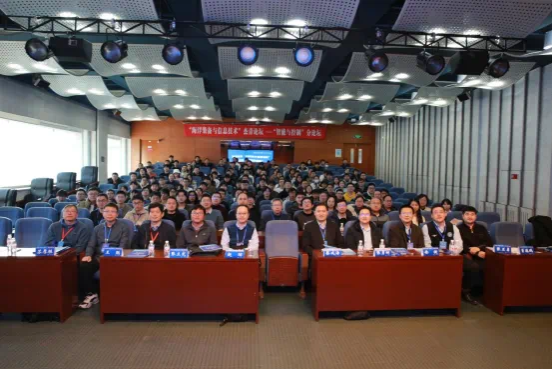
Cai Chengtao introduced the history, development, academic directions, and achievements of HEU's School of Intelligent Science and Engineering to the attending experts, faculty, and students. He emphasized the school’s focus on the "Three Seas and One Nuclear" field, tackling critical technological bottlenecks for the nation. He noted that the school consistently upholds the principles of "putting the country's needs first, prioritizing national defense demands, and using public satisfaction as the ultimate standard," fully implementing the fundamental task of moral education. He stated that the school proactively addresses challenges posed by the new wave of technological revolutions, industrial transformations, and military advancements in higher education, aiming to develop innovative paths for cultivating strategic talent in national fields and building a demonstration area for talent cultivation.
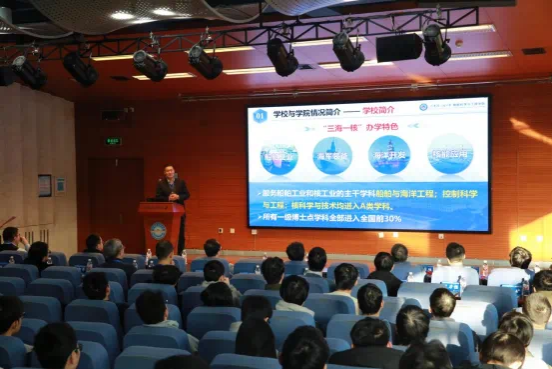
Zhao Jun presented a report titled "Modeling and Operational Optimization of Industrial Energy Systems". He addressed challenges in unified modeling of energy variables, quantification of uncertainties, and the semantic granularity of energy data, introducing relevant optimization methods.
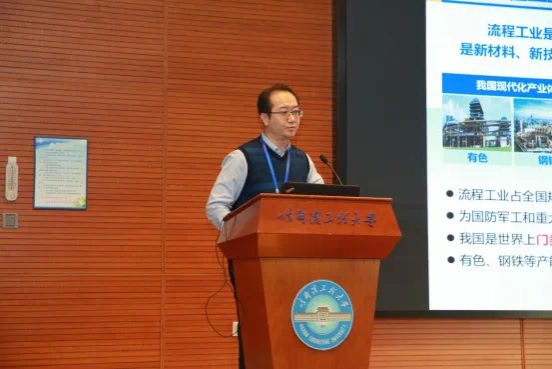
Wang Cong delivered a report titled "Machine Learning for Dynamic Systems and Applications". He discussed issues in dynamic learning methods and their applications, particularly in environments characterized by rapid changes and high uncertainty, and introduced relevant applications in this field.
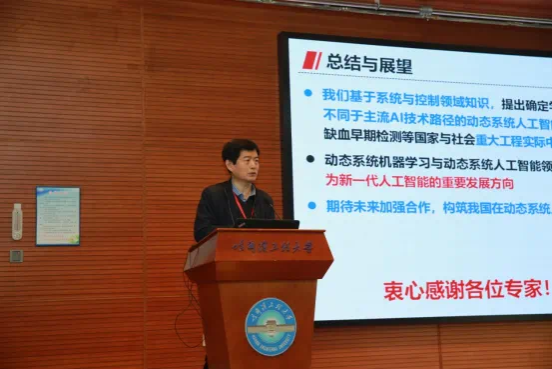
Su Housheng’s report, titled "Distributed State Estimation of Multi-Agent Systems", introduced the basic concepts and application scenarios of multi-agent systems. He explored distributed state estimation methods in detail, summarizing the challenges and future development directions of distributed state estimation in multi-agent systems.
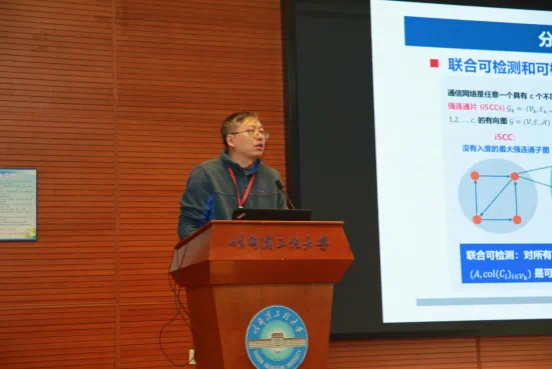
Zhang Yonggang presented a report titled "Autonomous Navigation of Underwater Unmanned Systems". He shared work in areas such as underwater navigation inertial devices, rapid startup of navigation systems, and intelligent information fusion for integrated navigation, while discussing the future development trends of autonomous navigation for underwater unmanned systems.
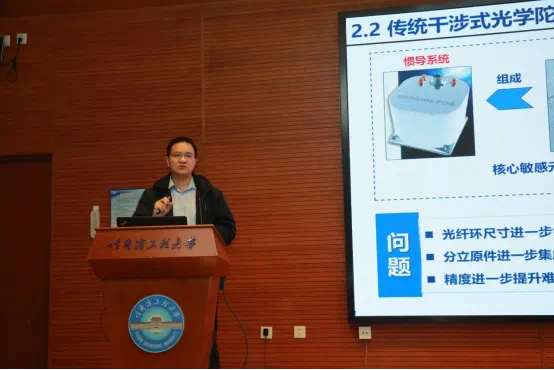
Zhang Lixian delivered a report titled "Current Status and Key Technology Analysis of Space Station In-Cabin Robots". He reviewed the research progress of space station in-cabin robots, introduced research work on robot configuration design and key technologies, and provided an outlook on the future development of in-cabin robots for space stations.
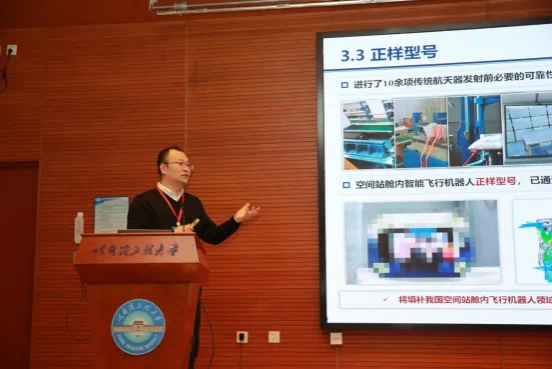
Participating faculty and students expressed that the forum provided them with a valuable platform for academic exchange, broadening their horizons while fostering stronger collaborations and connections. The School of Intelligent Science and Engineering at HEU is committed to promoting academic exchanges and technological innovations, offering more opportunities for experts and scholars to collaborate and contribute jointly to the development of the fields of marine equipment and information technology as well as intelligent science and control.
